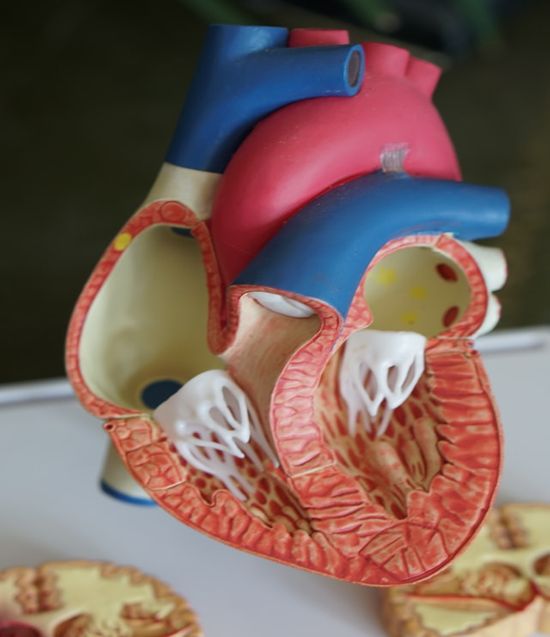The sun is something we see in the sky almost every day, and we don’t always give it much thought. Plus, we often have to be careful about prolonged sun or heat exposure so we don’t become dehydrated or overheated.
But there’s a reason sunlight so often represents cheerfulness, joy, and energy. And though caution may be needed in some areas, sunlight indeed provides many health benefits.
That’s why Seventh-day Adventists talk about the importance of adequate sunlight in our eight principles for wellness. The sun’s rays trigger our bodies to make vitamin D—a vital nutrient—while also providing us with many other physical, mental, and spiritual benefits.
So let’s look at:
- Why you need sunlight for optimal health
- Why Adventists emphasize sunlight
- How much sunlight we need
- How to get more sunlight
Why you need sunlight for optimal health

Photo by Olimpo Ávila Salazar on Unsplash
Sunlight is probably best known for stimulating the production of vitamin D in our bodies. But it also offers many other benefits that may or may not be associated with vitamin D:
- Decreased risk of sickness
- Decreased risk of cancer
- Improved blood pressure
- Better sleep
- Better mood
- Improved ability to think
- Balanced hormones
- Better skin health
We’ll explore each one.
1. You’ll get vitamin D1
Vitamin D is an important hormone that the skin produces when it’s exposed to the ultraviolet (UV) rays of the sun. This vitamin helps the body absorb calcium.
Not having enough vitamin D contributes to many problems with bone health: osteoporosis, rickets, osteomalacia, and weak teeth.
A study published in the American Journal of Clinical Nutrition also noticed a link between vitamin D deficiency and muscle weakness. Older individuals with low vitamin D levels had a greater risk of falling than those with enough vitamin D.2
2. You’ll get sick less

Photo by Andrea Piacquadio
Vitamin D may boost the immune system too. People with higher amounts of it in their blood had a lower chance of getting the flu or other viruses. And even those who did get sick had much less severe cases.3
Researchers at the University of Copenhagen found that vitamin D helps stimulate certain kinds of immune cells called killer T cells. Without vitamin D, these cells “remain dormant” instead of fighting bacteria and viruses.4
So if you want to mobilize your body’s defense systems, make sure you’re getting sunlight!
Aside from boosting the immune system, sunlight can also act as a disinfectant. It’s the reason your grandma used to hang her laundry outside to dry: Sunlight kills bacteria.5
3. You’ll reduce your cancer risk6
Again, we have vitamin D to thank for at least part of this benefit. Spending time in the sun may decrease the risk of dying from cancer because vitamin D seems to stop the growth of cancer cells.
Vitamin D also may decrease the risk of colon, pancreatic, ovarian, and breast cancer.
4. You’ll improve your blood pressure

Photo by Robina Weermeijer on Unsplash
In response to the sun, the cells produce a chemical called nitric oxide, which opens up the blood vessels allowing for easier blood flow.7
A study published in the Journal of the American Heart Association noted that spending time in the sun seemed to lower the blood pressure levels of participants.8
5. You’ll sleep better
You know what it’s like to try sleeping in only to have the sun stream through the window into your eyes. That might not help you sleep.
But getting sunlight during the day will. Why is this? It’s because it helps your body produce melatonin, a hormone that regulates your circadian rhythm and sleep during the night. Artificial light, though, does not have the same effect as natural light.9
6. You’ll feel better
Ever heard of SAD? It stands for seasonal affective disorder, a “type of depression that’s related to changes in season.”
People can get SAD when they don’t have enough sunlight or daylight exposure.10 It’s a common occurrence for people who live in higher latitudes, especially near the arctic circle where the sun emerges for only a few hours during the day in the winter.11

Photo by Ron Lach
A study by Brigham Young University noticed something similar: people experienced greater “mental health distress” during the winter months when there was less time between sunrise and sunset.12
One of the primary ways to prevent or cope with SAD is to get more natural light or use a light box that mimics natural light.
But for the majority of us that don’t live in those darker regions, we can take advantage of sunlight year-round. Especially its mood-boosting effect.
As light enters the eyes, it triggers the production of neurotransmitters, chemicals in the brain that affect many aspects of the body, including mood. One of these is serotonin—known as the happy hormone.13
But turns out, it helps your brain in other ways too.
7. You’ll think better
We all want to be more alert, think more clearly, and focus better. Sunlight might play into that as well!
Spending time in the sun increases the blood flow to the brain and boosts the production of neurotransmitters, which help to pass messages between nerve cells in the brain.14
8. Your hormones will be more balanced
Spending time in the sun may help with hormone balance—for both men and women.
Men who spent one hour in the morning sunlight had an increase in luteinizing hormone, a chemical in the body that’s important for reproductive health. Women likewise experienced the benefits because sunlight helped balance their menstrual cycles.15
9. It may help your skin
Some evidence shows that sunlight may help with skin conditions like psoriasis, eczema, acne, and jaundice. Dr. Melissa Piliang, a dermatologist at the Cleveland Clinic, cautions against overdoing sunlight exposure but says that light therapy may improve these problems.16
Always consult your doctor or a medical professional when considering natural treatment options, such as sun exposure.
Now that we know what sunlight can do for us, let’s learn about the other reasons Adventists care about it.
Why do Adventists emphasize sunlight?

Photo by Lucas Ludwig on Unsplash
Besides scientific research that confirms the many physical and mental benefits of sunlight, Adventists consider biblical principles as well.
Sunshine is mentioned right in the Creation account—God gave the sun as the primary light source for the world and called it “good” (Genesis 1:14–18). And as its Creator, He controls and commands it (Job 9:7; Isaiah 38:8).
The Bible even speaks of the pleasantness of the sun (Ecclesiastes 11:7) and uses it as a metaphor for God:
“For the Lord God is a sun and shield; the Lord bestows favor and honor” (Psalm 84:11, ESV).
Ellen White—a key founder in the Adventist Church who wrote large amounts on the topic of health—also talked about the importance of sunlight. She called it a “blessing from heaven” and “one of nature’s most healing agents.”17
Notice what she says in this statement:
“Pure air, sunlight, abstemiousness, rest, exercise, proper diet, the use of water, trust in divine power—these are the true remedies.”18
Thus, long before scientific research confirmed the benefits of the sun, she encouraged people to spend time outdoors in “the glad sunshine” and to allow light into their homes.19
Her counsel and the Bible’s comforting words are reasons Adventists actively promote this health principle today.
But you may be wondering, How much is too much?
How much sunlight do we need?

Photo by ROMAN ODINTSOV
Moderate sun exposure is good for us, but we need to make sure we don’t get too much.
Dr. Neil Nedley, an award-winning physician who runs the Nedley Depression and Anxiety Recovery program, talks about the importance of sunlight in his book, The Lost Art of Thinking. He offers the following recommendations for getting enough sun:
Each day, get 5 to 30 minutes in the sun between 10 a.m. and 4 p.m. without wearing sunscreen. Make sure that your face, arms, hands, and legs are exposed to the sun. People with fair skin will need less time, while those who are older and have darker skin need to spend more time in the sun to get the same amount of vitamin D.20
There’s reason to be careful about exposure to the UV light of the sun, though. Getting too much sun can lead to:
- Sunburn
- Heat exhaustion
- Dehydration
- Wrinkles and early aging
- Skin cancer
If you plan to spend many hours in the sun, wear proper sun protection—a hat, a sunscreen of SPF 15 or higher, etc.
But many people around the world have the opposite problem: we don’t get enough sunlight! What can we do about that?
What are ways to get more sunlight?

Photo by Emma Simpson on Unsplash
Here are some ways Adventists get in those 5 to 30 minutes of sunlight. They just might work for you too!
- Exercising outdoors—whether jogging, walking, going for a bike ride, or doing some other form of enjoyable exercise
- Working in the garden or yard
- Allowing light indoors—opening up those curtains and blinds
- Eating a meal outside or having a picnic with a friend
- Standing or sitting in the sunshine for a short time
If you live in a region of the world that gets significantly less sunlight during certain parts of the year, you may want to try the following tips to continue experiencing the benefits of sunlight:
- Being intentional about finding and sitting in the sun whenever possible, particularly in the morning
- Getting light therapy from a light box or exposing yourself to blue light for 15 to 20 minutes in the morning21
- Taking a vitamin D supplement (be sure to check with your doctor first)
Let some sunshine in!
God created sunlight to be a blessing for humans. It provides us with warmth, light, and health benefits.
But in our broken and imperfect world, we also have to be careful of the dangers of the sun. Too much sun can cause damage to our bodies.
Even so, this doesn’t mean we should hide from it. If we do, we’ll miss out on the good it can do for us!
So make sure to get in that 5 to 30 minutes of sunshine each day. And as you bask in the warm rays, let them remind you to seek God’s warm and loving presence in your life too!
- “Vitamin D: Fact Sheet for Health Professionals,” National Institutes of Health. [↵]
- Janssen et al., “Vitamin D Deficiency, Muscle Function, and Falls in Elderly People,” American Journal of Clinical Nutrition, 75 (4), 2002, pp. 611–615. [↵]
- Hendrick, Bill, “Vitamin D May Cut Risk of Flu,” eMedicineHealth, June 16, 2010. [↵]
- “Vitamin D Crucial to Activating Immune Defenses,” ScienceDaily, March 8, 2010. [↵]
- Holland, Kimberly, “Want to Kill Dangerous Bacteria? Open Your Blinds,” Healthline, Nov. 28, 2018. [↵]
- Holick, Michael, “Vitamin D, Sunlight, and Cancer Connection,” Anticancer Agents Med Chem, 13(1), 2013, pp. 70–82. [↵]
- Holliman, Graham, “Ultraviolet Radiation-Induced Production of Nitric Oxide,” Scientific Reports, Sept. 11, 2017. [↵]
- “Could Sunshine Lower Blood Pressure? Study Offers Enlightenment,” American Heart Association News, Feb. 28, 2020. [↵]
- Nedley, Neil, The Lost Art of Thinking (Nedley Publishing, Ardmore, OK, 2011), p. 239. [↵]
- “Seasonal Affective Disorder: More Than the Winter Blues,” American Psychological Association, 2014. [↵]
- Haggag et al., “Seasonal Mood Variation,” Acta Psychiatrica Scandinavica, 81(2), pp. 141–145. [↵]
- Moss, Rachel, “Sunshine Improves Mental Wellbeing, with Dark Months Linked to Emotional Distress, Study Finds,” HuffPost, April 11, 2016. [↵]
- Nedley, p. 238. [↵]
- Kent et al., “Effect of Sunlight Exposure on Cognitive Function Among Depressed and Non-Depressed Participants,” Environmental Health, 8(34), 2009. [↵]
- Nedley, p. 239. [↵]
- “How the Sun Can Benefit Some Skin Conditions,” Cleveland Clinic, July 2, 2021. [↵]
- White, Ellen, Testimonies for the Church, vol. 2 (Pacific Press, Mountain View, CA, 1868), pp. 530, 527. [↵]
- White, Ellen, The Ministry of Healing (Pacific Press, Mountain View, CA, 1905),p. 127. [↵]
- Ibid., pp. 264, 275. [↵]
- Nedley, p. 246. [↵]
- Ibid., p. 240. [↵]
Want to learn more about Adventists and healthy living?
More Answers
7 Reasons Why a Day of Rest is Important
We live in a fast-paced world. It seems as if success is measured in how much you can do in a short amount of time. (Extra points for the service or product that is available 24/7).
The Health Benefits of Fresh Air You Should Know About
“When you can’t breathe, nothing else matters,” the American Lung Association tells us. We couldn’t agree more! Breathing in clean air is an essential part of caring for our bodies, which God has given us. Together with other health principles, it promotes optimum physical, mental, and spiritual health.
What the Bible says about Self-Control (and some practical tips)
Self-control is defined as the ability to control one’s thoughts, impulses, actions, and desires. And human nature being what it is, this can be a daily struggle.
Why Your Body Needs Rest for Optimal Health
Struggling to think straight? Wondering why you can’t remember that important tidbit you heard earlier today? Feeling like your emotions are about to explode?
The Seventh-day Adventist Diet: One of Our Key Longevity Secrets
Oats, avocados, lentils, tofu—probably not what you first think of in a standard American diet. But if you show up at the home of an Adventist, chances are you may be served one of these staples.
What Does the Bible Say About Grief and How Do We Overcome Grief?
The death of a beloved grandma. An unexpected fire that destroys your home. A relationship that dissolves.
what Do Adventists Say About Exercise?
Throughout their history, Seventh-day Adventists have upheld the importance of healthy living. This focus on whole-person wellness logically includes exercise, so many Adventists strive to be intentional about staying active.
Why Is Water So Important?
We all know that water is a substance we can’t live without. It quenches our thirst and keeps us hydrated on the inside. And it’s necessary for hygiene and cleansing on the outside too.
What You Should Know About the Adventist Health Studies
But what you may not know is that Adventists have been the subjects of long-term research into lifestyle and health. Since 1958, researchers from Loma Linda University School of Public Health have conducted five cohort studies. Collectively, these studies are known as the Adventist Health Studies.
Trust in God: The Key to Health You May Be Missing
Who can we trust? The desire to trust is hardwired in us from our earliest years. Ideally, our parents will have built a foundation of trust through their care for us.
Why are many Adventists Vegetarian?
Many Seventh-day Adventists are vegetarians because they value personal health as one way to honor God through caring for their bodies (1 Corinthians 6:20; 10:31; Romans 12:1-2). Plus, God originally gave humans a plant-centered diet, according to Genesis 1:29, and today, more and more research is revealing the benefits of eating a diet low in animal products and high in foods like fruits, vegetables, grains, and nuts.
Didn’t find your answer? Ask us!
We understand your concern of having questions but not knowing who to ask—we’ve felt it ourselves. When you’re ready to learn more about Adventists, send us a question! We know a thing or two about Adventists.














